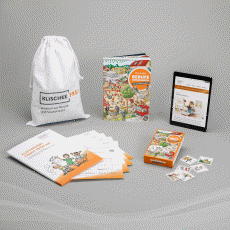
Bundesinstitut für Berufsbildung AB 4.1 Initiative Klischeefrei
Friedrich-Ebert-Allee 114-116
53113 Bonn
Germany
53113 Bonn
Germany
more information
Hall 7.1 | C057
Initiative Klischeefrei
Die Initiative Klischeefrei setzt sich für eine Berufs- und Studienwahl frei von Geschlechterklischees ein. Unser Ziel ist es, jungen Menschen eine an ihren Stärken und Interessen orientierte Berufswahl zu ermöglichen. Unsere Angebote setzen früh im Lebenslauf an: Methodensets für Kita, Grundschule und Schule fördern das klischeefreie Aufwachsen, Faktenblätter informieren über Hintergründe und Zusammenhänge, Online-Fortbildungen wenden sich an pädagogische Fach- und Lehrkräfte. Unser Netzwerk versammelt mehr als 600 Organisationen aus allen Bereichen der Gesellschaft: Kitas, Schulen, Hochschulen, Träger von Weiterbildungen und Berufsberatung, Verbände, Vereine, kleine und große Unternehmen, Ministerien, Städte und Kommunen und viele mehr.


